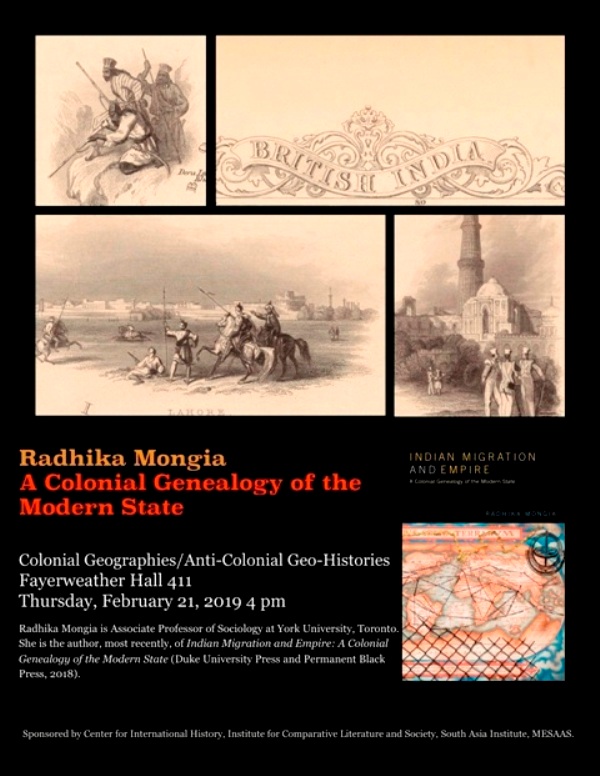
Fayerweather Hall 411
Center for International History, Institute for Comparative Literature and Society, South Asia Institute, and MESAAS
Recent years have witnessed an increased attention to specifying the characteristics of the colonial state, largely focused on outlining its distinctiveness. Two epistemological frames subtend most inquiries: first, replicating the Weberian view that the state is a territorially circumscribed entity, analyses of the state are also similarly circumscribed. Second, if implicitly, the normative horizon of the inquiries is the European modern state. While recognizing the value and, oftentimes, the necessity of studies conceived in territorially delimited terms, this presentation will suggest ways to address the coproduction of the coeval formations of colonial state and the modern state. Through an assessment of state control of colonial Indian migration, I address how important features of historical state formation are obscured when analyses assume a presentist territorial closure, that modern elements are embedded in the colonial state form, and that a colonial dimension is an integral aspect of the modern state form, globally.
Radhika Mongia is Associate Professor of Sociology at York University, Toronto. She is the author, most recently, of Indian Migration and Empire: A Colonial Genealogy of the Modern State (Duke University Press and Permanent Black Press, 2018).







